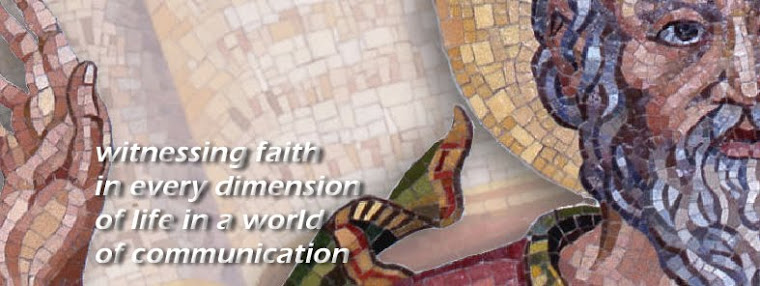Human Longing, Segue to Hope
Spes Salvi describes how our human longing provides a segue into hope: “We want only one thing – the ‘blessed life,’ the life which is simply ‘happiness.’ In some way we want life itself, true life, untouched even by death; yet at the same time we do not know the thing toward which we feel driven. This unknown ‘thing’ is the true ‘hope’ which drives us, and at the same time the fact that it is the unknown is the cause of all forms of despair and also of all efforts, whether positive or destructive, directed toward worldly authenticity and human authenticity” (11-12). When human hopes are fulfilled it becomes clear that we have need of a hope which goes even further. Only something infinite and unchanging will suffice. A perfect world seems to be achievable but always out of reach.
I am reading a book called The Misfit by Larry Lewis, a Maryknoll missionary. Upset by the death of his father, Fr. Lewis felt compelled to teach in mainland China as he dealt with loss. He was there during the student pro-democracy demonstration in Tiananmen Square, consequent government crackdown and massacre of many students by the Chinese military. Hope is a refrain throughout this book. The Chinese government hoped for a perfect society achieved through Marxist Communism, placing faith in the truth of here and now. Party members believed redemption could be found by controlling the school staff and students. In this misplaced hope for the kingdom of man freedom was taken away. Fr. Lewis hoped to reveal the deeper reality of being human to the students through his American literature course. “Their appreciation of the void,” describes Fr. Lewis, “brought them to the threshold of the liberating mystery.” Hope was instilled in the students as they looked through the void to God. They discovered their capacity for relatedness with the truth, their soul (259).
The human person desires boundless fulfillment. The suffering that Fr. Lewis experienced in his life led him to truly love and be with others in their suffering. In doing so he introduced them to truth and freedom in the kingdom of God. Entering the void and the doubt that accompanies faith is a suffering that allows us to be with those who have no hope; we don’t limit ourselves to asking “how can I save myself?” No one is saved alone. Heaven is a stranger to isolation since it is the un-ruptured self-communion of the body of Christ. The encounter with Christ is the encounter with his whole body. “We come face to face with our own guilt vis-à-vis the suffering members of that body (232). Purgatory is that inwardly necessary process of transformation in which a person becomes capable of Christ, capable of God and thus capable of unity with the whole communion of saints. Jesus’ descent into Hell in that freedom of his own love is a challenge to us to suffer in the dark night of faith, to experience communion with Christ in solidarity with his descent into the night (217). Christ descended into Hell and is therefore is close to all those on the edge of despair.
The communists who opposed the students at Tiananmen Square misplaced their hope in building a kingdom of man without God (22). Man’s great, true hope is that through Jesus we have become certain of God who has loved us and continues to love us. There is a new truth for man, the truth of being loved by truth (206). If we are in relationship with him who does not die, who is Life itself and Love itself, then we are in life (28). His love gives us the possibility of following his way and persevering day by day in a world which by its very nature is imperfect. Christ is way, truth and life (John 14).
Sr Margaret
Quotes: Benedict XVI
Spes Salvi (double digit) &
Eschatology: Death and Eternal Life (triple digits)
Subscribe to:
Post Comments (Atom)


1 comment:
This is absolutely amazing! Thank you!
Post a Comment